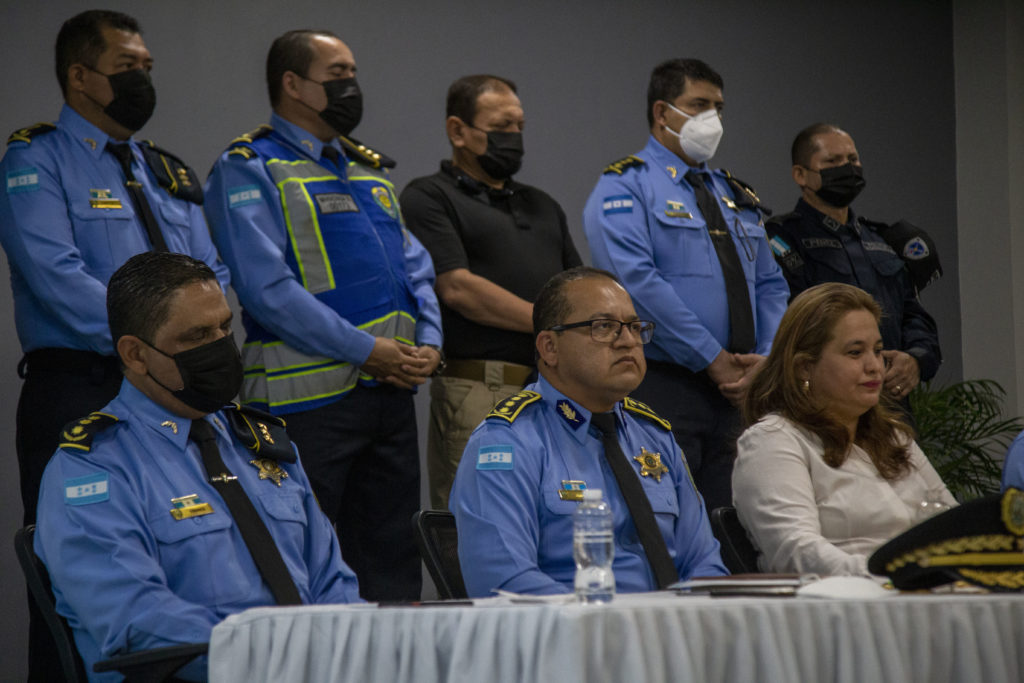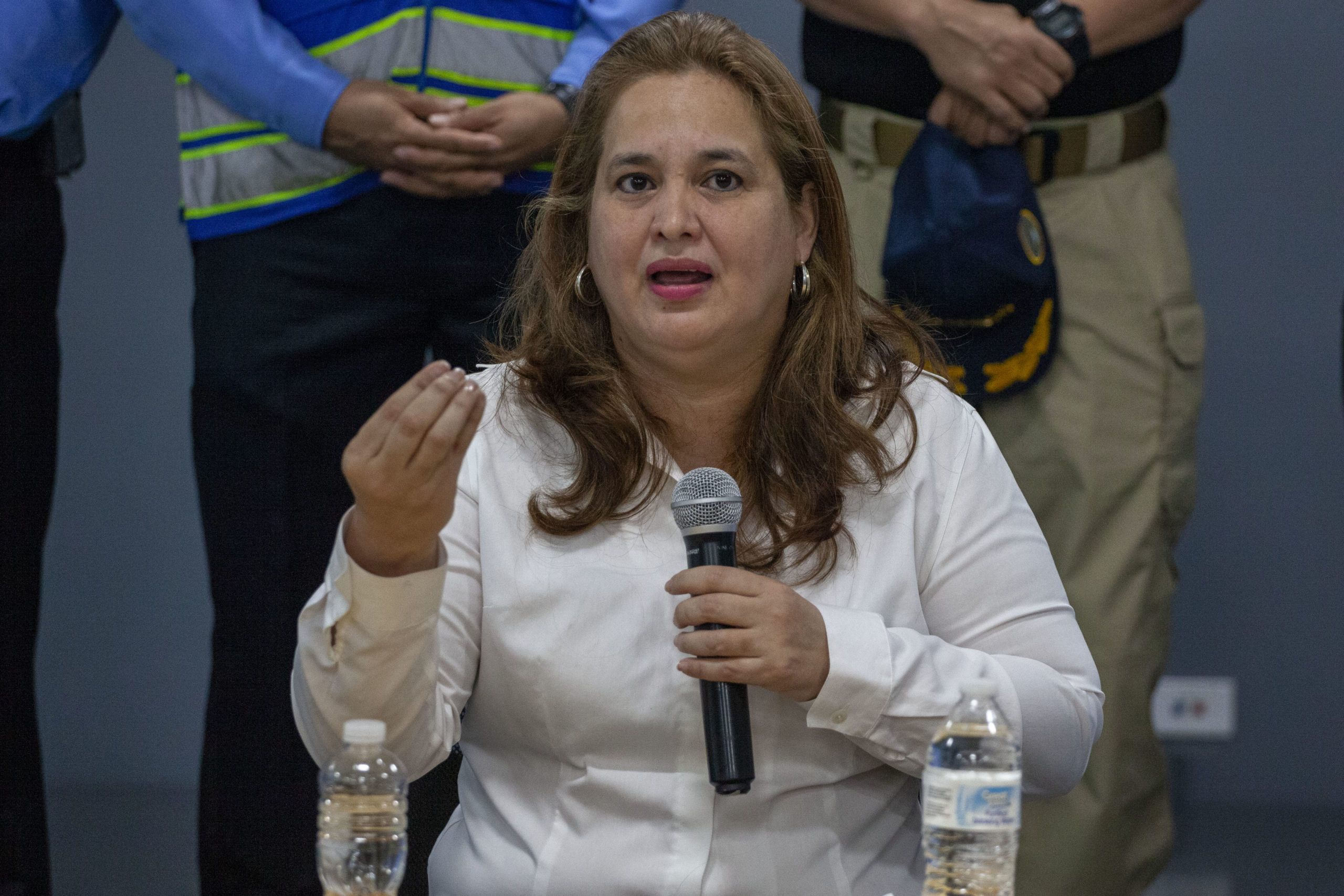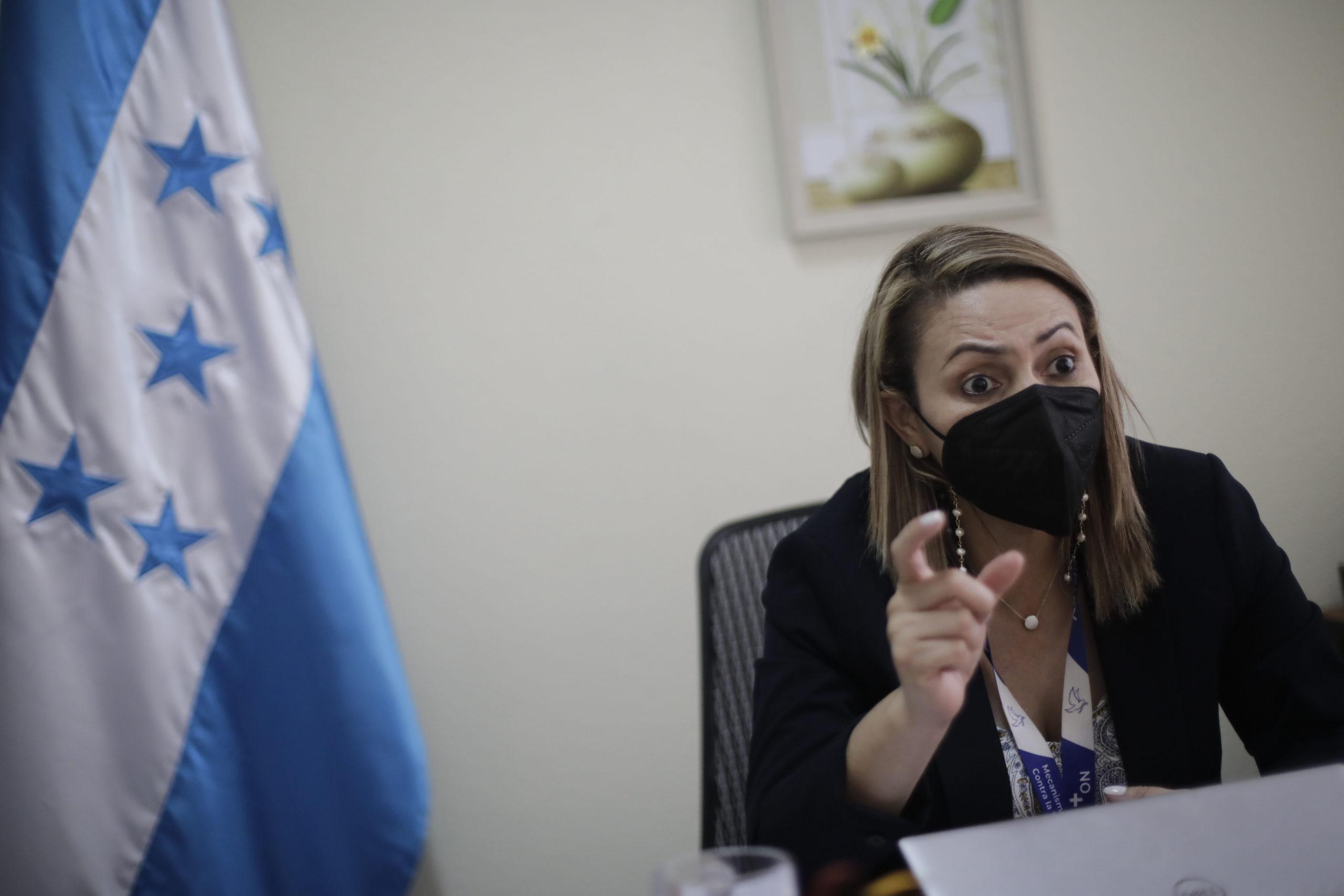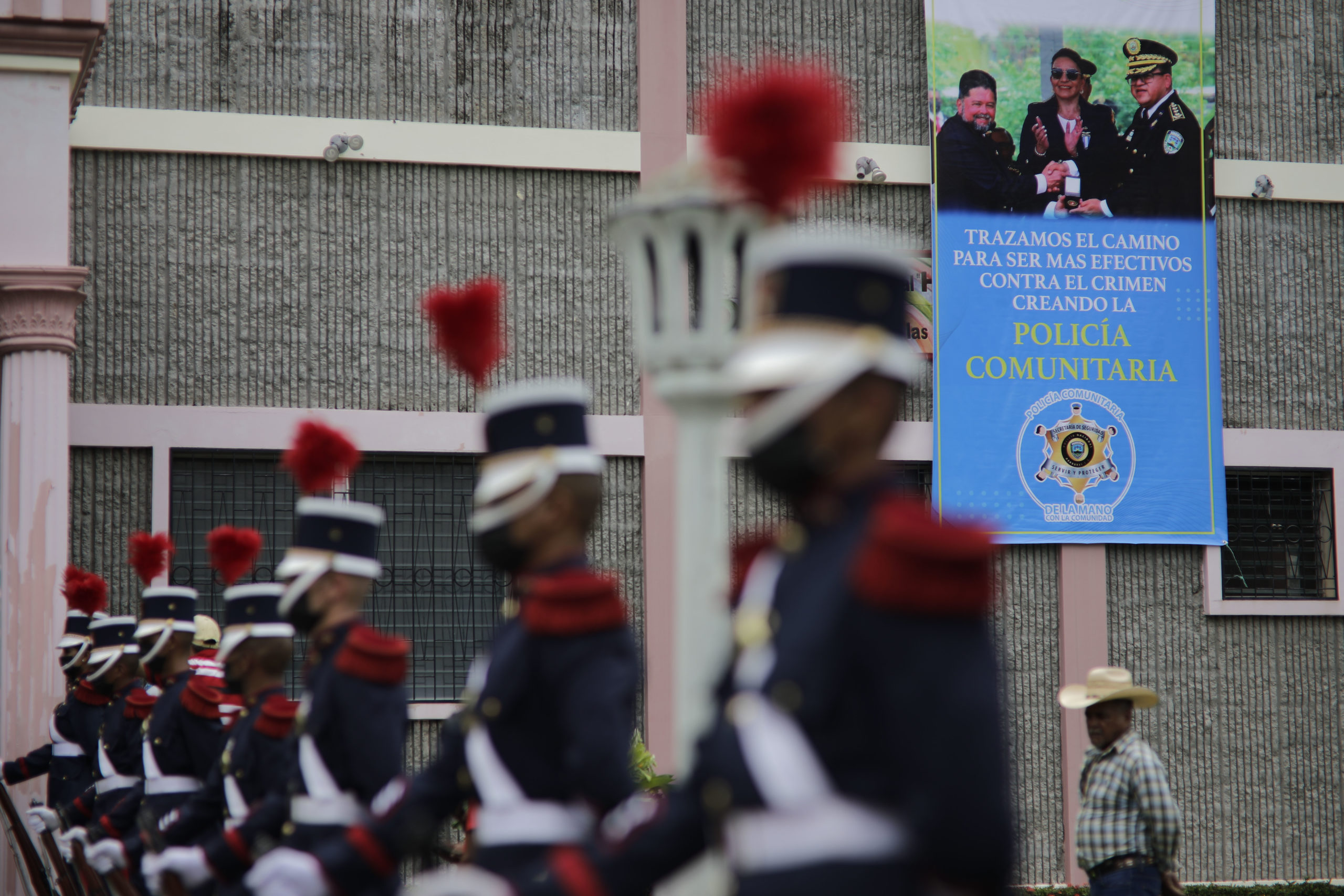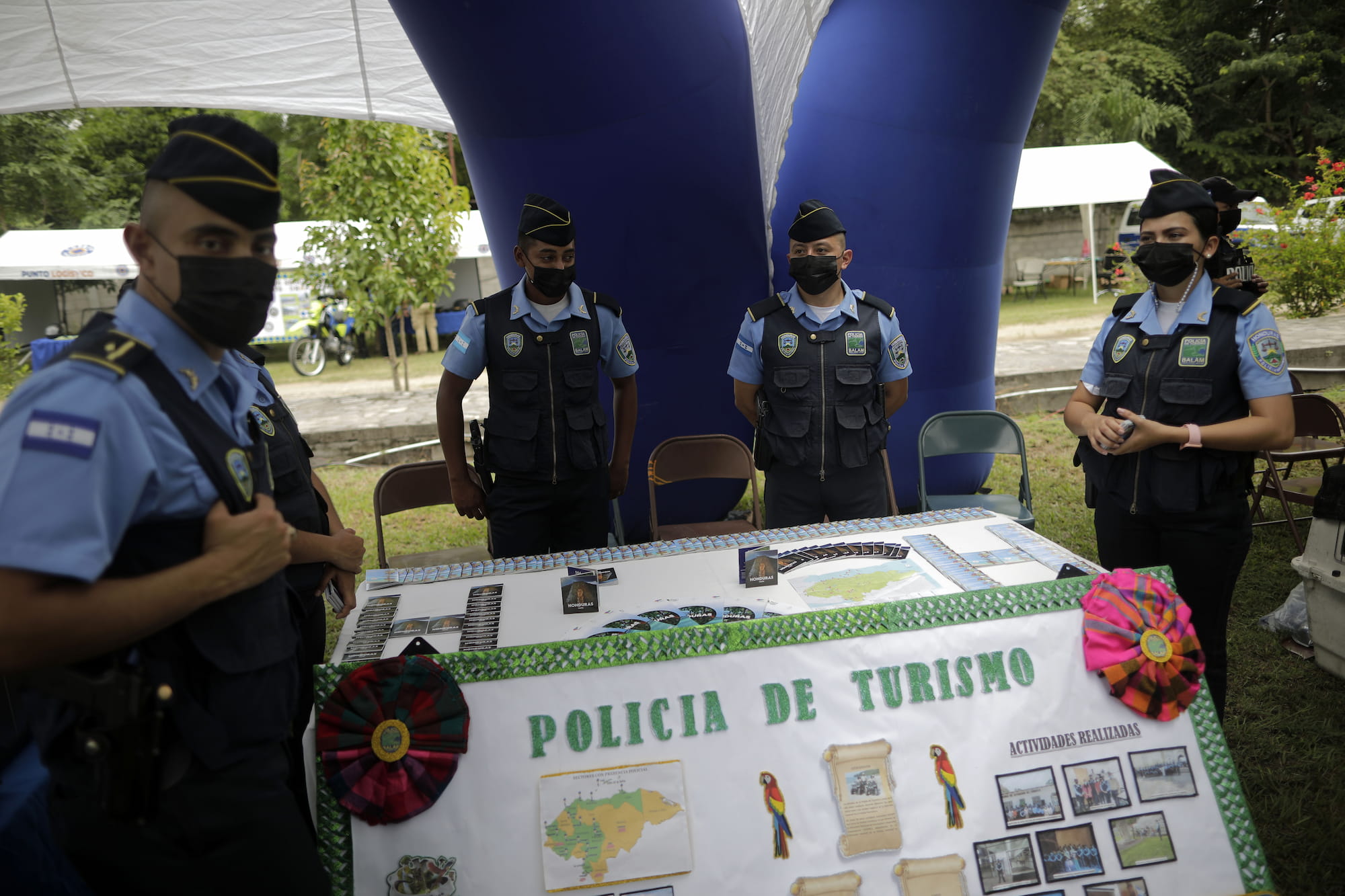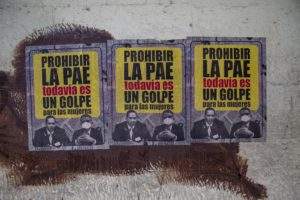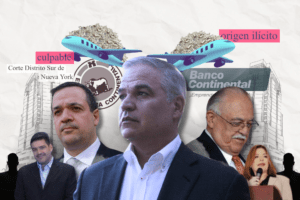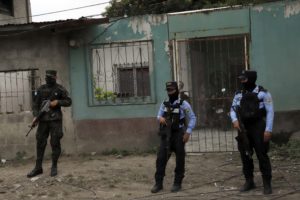Last month, three young people died and 31 were hospitalized during a training session for aspiring auxiliary officers at the National Police Academy (Academia Nacional de Policía -ANAPO). For now, a definitive version of what happened is not known, nor have the autopsies of the deceased been made available. Relatives of those affected and experts are sure that the training involved excessive force.
Text: María Celeste Maradiaga
Photographs: Jorge Cabrera and Fernando Destephen
Translated by Ann Deslandes
On September 11, 2022, the National Police announced on its web page that it would be receiving more than 500 aspiring auxiliary officers at its National Police Academy (ANAPO).
University graduates from different parts of the country arrived with their families at the ANAPO facilities in the department of La Paz, in western Honduras, with the aim of obtaining a position in the Academy. On the day, 495 applicants were selected for admission from a group of more than 3,000 people.
Hours later, health complications were reported among several applicants after the first day of a four-month course.
Indeed, the training they had undergone upon arrival resulted in 31 people being hospitalized and the death of Jairo Martínez Cruz and Ronald Javier Coello, who, according to a National Police press release, presented respiratory complications. A week later, the death of the third aspiring auxiliary officer, medical graduate Kevin Mejía, was reported.
Subsequently, the Security Secretariat held a press conference led by Deputy Secretary of Security, Julissa Villanueva. The general commissioner of the National Police, Héctor Gustavo Sánchez also participated.
Villanueva categorically denied the use of tear gas in the training and suggested that the deaths could have been caused by “muscle overwork” or the “use of energy drinks”.
A relative of one of the hospitalized young people told Contracorriente that all the new trainees were forced to present their medical exams prior to starting the course. The police, however, say that they were not aware of all the trainees’ states of health.
The relative, who has asked for their identity to be protected due to fear of reprisals, said that in addition to being exposed to high temperatures prior to the start of the event, the aspiring officers only had 40 seconds to eat and were immediately put to a test of running while carrying their own luggage.
“They were given fish and a Tang [powdered drink made with water]”, said the relative, adding that they think there may have been a problem with the fish being “already days old.”
So far, according to testimonies of various hospitalized young people and their relatives, there are around 30 in different hospitals with food poisoning, among them three hospitals in the capital.
Prior to the course, the academy did not report how many auxiliary officer positions were actually available, nor do we know the content of the instruction or manuals being followed for the initiation training. Auxiliary officer training should be different from that for police officer intervention units or special police forces.
Another relative of one of the young people hospitalized says that, prior to the course, their family member was constantly doing exercise, and also complied with the medical exams required by the police authorities to enter the course. The relative has also asked to remain anonymous for security reasons.
“They [ANAPO] have not wanted to tell us in detail” what happened to the trainees”, said the family member.
“They have been very evasive” in response to questions.
“We don’t know why there is so much secrecy,” they said, also saying that during the training his relative began to convulse and was immediately transferred to the regional hospital of La Paz, and then referred to the Hospital San Jorge de la Colonia El Hato, in Tegucigalpa.
The hospitalized trainees have confirmed these accounts to Contracorriente.
The ANAPO also negates the version of the facts provided by Julissa Villanueva as Deputy Secretary of Security.
The ANAPO says nobody consumed energy drinks as they cannot be acquired inside the academy. Further, the medical examinations requested before the course confirmed that none of the trainees had any underlying disease, with none ruled out for minimal physical incapacity.
“We have not received diagnoses, everything has been very private,” one of the trainees told Contracorriente.
“We are not given information about our condition other than ‘you are getting better’… we have not been told if they found anything in the thousands of tests they have done on us,” they said.
To be sure, along with the autopsies of the three young people who have died, the diagnoses of the people who are hospitalized are unknown and have not been provided by the ANAPO.
All the testimonies provided to Contracorriente mention possible food poisoning due to the state of the food and the time in which they ingested it; the aspirants experienced convulsions; and excessive exercise.
Dr. Claudia Ramírez, who is also a congresswoman for the Partido Salvador de Honduras (PSH), says that many factors can cause convulsions in a person, but, in this case, extreme exercise added to a possible food poisoning could have generated a higher cardiac output and provoked a convulsion.
On September 19, 2022, Dr. Suyapa Figueroa, another congresswoman for the Salvador Party of Honduras (PSH), presented a draft bill requiring specialists to carry out the pertinent medical evaluations of hospitalized ANAPO candidates. Dr. Figueroa says the purpose of the bill is to compel an investigation parallel to the one being carried out by the National Police at the moment and of which no progress has been made so far.
“Why was there no foresight?” asks Dr. Figueroa, saying Anapo is supposed to have well-established norms and regulations, as well as the resources to keep trainees safe.
“The guarantors of human rights cannot become violators of the human rights of those who enter the academy,” says Dr. Figueroa, who also says that the response from the Ministry of Security is minimal and unsatisfactory.
Contracorriente contacted the general commissioner of the National Police, Gustavo Sánchez, but he did not respond to requests for an interview.
Disproportionate exertion and a stand for brutality
The commissioner of the National Committee for the Prevention of Torture, Cruel, Inhuman or Degrading Treatment (Mecanismo Nacional de Prevención Contra la Tortura, Otros Tratos Crueles, Inhumanos o Degradantes – MNP Conaprev), attorney Melissa Escoto, says that the physical exercise required from trainees on their first day was disproportionate to the capacities of university graduates without experience of exhaustive physical exercises such as those carried out in military and police formations.
“We lament what happened with … these young boys,” said Escoto.
“These types of practices should not happen, considering that, from the beginning, these people had undergone a thorough medical evaluation, so we can say that they were completely healthy, [they had] passed a process of application or at least to be included in the list of candidates” for auxiliary police officers,” she added.
Retired police commissioner María Luisa Borjas agrees.
In “[trying] to cover up these situations… to silence what is so obvious”, [the value of] “‘esprit de corps’ has been misapplied,” she said.
“I have been extremely surprised by the statements made by Dr. Villanueva, who is a professional; a forensic pathologist,” continued Borjas.
“And yet, in a desperate attempt to cover up the responsibility for these acts, she has said any number of things, even contradicting herself.”
“From the beginning, I have said that this deserves an exhaustive investigation, [and] that it should not be carried out by the police, but by an external entity, with responsible professionals. so that the results are totally transparent and impartial”.
By ‘esprit de corps’ (a French phrase) Borjas, who was previously head of the Police Internal Affairs Division, refers to the police principle of solidarity in supporting and helping each other among police officers, although in most cases this means covering each other up.
The press release issued by the police referring to the events at ANAPO reports the suspension of commissioner Marlon Vásquez Palma from the position of director of the academy.
Vásquez Palma was previously indicted by the Human Rights Prosecutor’s Office in 2017 for abuse of authority and persecution of students of the University Student Movement, along with two other officers (Juan Manuel Aguilar Godoy and Félix Adrián Colindres). They were accused of abuse of authority, violation of the duties of officials, injuries, and illegal detention and torture against human rights defenders and university students.
Psychologist Warren Ochoa says that the training to which different police units are subjected, including aspiring auxiliary officers, functions as “justification for cruelty” and is historically used by police and military institutions in training new recruits.
That is, “the one at the top is the most powerful,” Ochoa explains. “He has the right to disregard the dignity of other people simply because he is [higher up], and ‘knows what is good’.” In real life, the psychologist continues, “we do not need someone to come and attack us,” nor do we need “to [run] around the field several times carrying my luggage when I have just arrived without having had proper physical preparation.”
However, the reality is different when these groups are prepared to “commit aggressions against the population when the groups in power deem it necessary in order to maintain their power and the privileges they hold.”
In addition, the psychologist explains that thinking in terms of the logic of “he who plays the game endures” revictimizes the trainees who, according to testimonies, were victims of verbal abuse and psychological aggression by the police in this training.
“This ‘justification for cruelty’ is present in gangs, in mafias, in the police and the army, which do not operate very differently from organized crime,” continues Ochoa.
“That is why, when training people in [the early stages], they [the recruits] are desensitized to verbal, psychological, and mental aggression, to theft, to physical aggression, and to the use of strategies of aggression, such as destabilizing people and making them docile and easy to manipulate,” he concluded.
A day after the tragedy, the National Police published a video in which Deputy Secretary, Julissa Villanueva is seen asking the aspirants who managed to complete the training if anyone had mistreated them, in military formation, they all answered: “NO!”, in a single chorus.
A police force with a ‘gender and human rights approach’
In the week previous to the ANAPO training, the Deputy Secretary for Prevention and Human Rights participated in a workshop on the design of comprehensive citizen security policies with a gender focus. The workshop was held by the United Nations Development Program (UNDP) and the United States Agency for International Development (USAID).
“It is necessary to review, analyze and update from a multidimensional perspective the factors that affect coexistence and citizen security… in order to reduce the threats of violence in the population that allows safe and peaceful coexistence,” says the UNDP press release about the program.
On July 6, 2022, in the department of Santa Bárbara, President Xiomara Castro announced the installation of Citizen Security Roundtables at the national level and reported on the implementation of the Community Police model throughout the country. Still, according to the National Police Portal, 654 homicides have been registered from that date until September 16.
María Luisa Borjas, the retired commissioner, says that the National Police’s current approach to the Honduran population is less ‘implementation’ of a model and more of a media campaign to have the citizenry form another opinion of the institutions when in reality the police continues to implement the same practices.
Indeed, the treatment of the ANAPO trainees has “set back” any vision of a better police institution, says Borjas.
“If they (the police) really want to recover credibility, they have to act within the legal framework, respecting the procedures.”
“An impartial and transparent investigation must be carried out, and the results must be reported, and those involved must be held accountable.”
The National Human Rights Commission (Comisión Nacional de los Derechos Humanos – Conadeh) has announced it will take the events that occurred in the ANAPO on September 11, 2022, to the Inter-American Commission on Human Rights (IACHR).
Retired commissioner Leandro Osorio says that the police currently have a totally different approach than in previous years, that is, a community approach.
“Previous governments abandoned these processes,” he says.
“Let’s remember that they militarized public security in this country, those who have been in charge of public security have been [doing military activities] without any training, without any expertise in public security,” he added.
“Changing public security in 7 months is not so easy.”
Osorio says that, by having a minister with academic training in police matters for the first time, public security is being strengthened, but with events such as those that occurred in the ANAPO, the image of the Academy has been damaged due to a lack of supervision.
“Many of the applicants did not pass the selection processes, so it is not known if someone had some kind of pathology and what kind of pathology; not all went through the selection process because many were recommended, and by accepting recommended people and not knowing if they have any disease, there is a lot of risk [in the process],” said Osorio.
For one of the relatives of one of the hospitalized trainees, many things do not add up: among them, inflammation of the eyes and allergic reactions found in the hospitalized candidates, the ambiguity of the police authorities when issuing an official version of the facts, and the way in which the training was developed when it was only the first day of this course.
“Why do the State and the governments in power – and I don’t want to blame the one that left or the one that is here – use such drastic institutions to go and treat a professional in such an aggressive way? And why do the boys undergo this training?”
“Well, because they are desperate, they want to earn money, there is a lot of unemployment in Honduras. They promised them a good salary, without deductions and all those things,” said the relative.
Like the others, this family member also asked to remain anonymous. Although the worst is over for their relative, they said, the secrecy and mishandling of the case give them cause to be cautious when it comes to the Honduran National Police.

